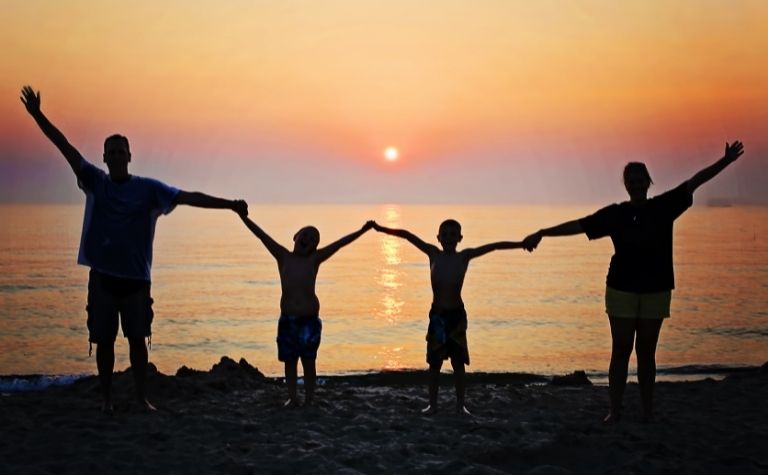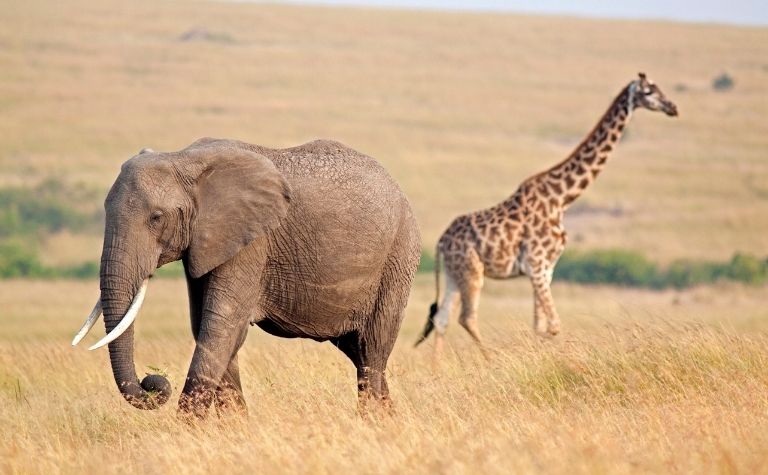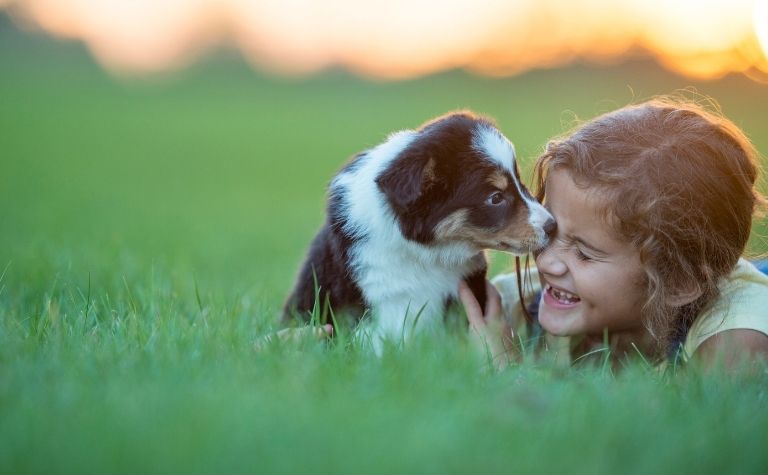The creation account that unfolds in the first chapter of Genesis leads to a profound climax that completes God’s creative work. The text of Genesis portrays the sixth day as God’s crowning achievement, a depiction that doesn’t apply to anything he already created, like the stars, animals, or vegetation. So what did God make on the sixth day, and why is it the pinnacle of the creation account?
God created land animals and people on the sixth day. The description in Genesis mentions three types of animals, which are distinct from the birds and sea creatures he previously made. However, the creation of people is the climactic moment and crowning achievement of God’s creative work.
What types of land animals does the description of Day 6 mention? What do people possess that nothing else in creation does? How does God’s creative work on the sixth day complete what he started on the third day? Keep reading to learn the answers to these questions and others.
Also see How Big Was Noah’s Ark? to learn more.

Let there be land animals: the start of the sixth day of creation
The sixth day contains the most extended description of the creation account in the first chapter of Genesis. It’s also the subject matter of the second chapter. Themes from the sixth day continue to develop in Genesis and throughout the Old and New Testaments.
The sixth day is the climactic event of the seven-day period is that for the first time because a part of the created order — men and women — bears the image of God himself. Nothing else in all of creation bears it. Only people do.
God created land animals
Yet before God created people on the sixth day, he made land animals. He said, “Let the earth bring forth living creatures according to their kinds — livestock and creeping things and beasts of the earth according to their kinds. And it was so” (Gen. 1:24, ESV).
| ESV Term | Meaning |
|---|---|
| livestock | domestic animals; “livestock” (NIV, NLT), “cattle” (KJV, NASB) |
| creeping things | small animals, perhaps legless; “creatures that move along the ground” (NIV), “small animals that scurry along the ground” (NLT), “creeping thing” (KJV), “crawling things” (NASB) |
| beasts | wild animals; “wild animals” (NIV, NLT), “beasts” (KJV) |
The text reveals that God made land animals “according to their kinds,” which he declared good (Gen. 1:25). The other places in the creation account when the phrase “according to their kind” appears is on the third day when God created plants and trees (Gen. 1:10, 12) and on the fifth when he made birds and sea creatures (Gen. 1:21). The common feature of days three, five, and six is the creation of life forms.
Genesis scholar Gordon Wenham writes, “The implication, though not stated, is clear: what God has distinguished and created distinct, man ought not to confuse (Lev. 19:19; Deut. 22:9-11). Order, not chaos, is the hallmark of God’s activity.” [1]
Also see Who Is a Serpent In the Bible? to learn more.

God made people in his image
Genesis scholar Douglas Kelly writes, “In Genesis 1:26 there is a notable shift in language, indicating the highest stage in all the week’s creative activity, the solemn act for which purpose all the rest had been merely preparation.” [2]
Genesis 1:26 not only marks a turning point regarding the events of the sixth day but of the entire week of creation, as God created “human beings” (NLT). God said, “Let us make man in our image, after our likeness” (v. 26a). One of the unique characteristics of “mankind” (NIV, NASB) is that it bore his image, which no other living or non-living part of creation did.
Furthermore, God gave “man” (KJV, NKJV) dominion over everything else he made. “Let them have dominion over the fish of the sea and over the birds of the heavens and over the livestock and over all the earth and over every creeping thing that creeps on the earth'” (Gen. 1:26b, ESV).
Genesis scholar Victor Hamilton explains that the word dominion “reflects royal language. Man is created to rule. But this rule is to be compassionate and not exploitative.” [3]
The next verse describes human beings as male and female. “So God created man in his own image, in the image of God he created him; male and female he created them” (Gen. 1:27).
The second chapter of Genesis gives readers more information about the first male and female, Adam and Eve. God tells man and woman to “be fruitful and multiply and fill the earth and subdue it” (Gen. 1:28).
To serve this purpose, God gave people dominion over animals (Gen. 1:28), plants, and trees, which would sustain their lives and give them food (Gen. 1:29-30). Unlike the other days that God called good, when he looked upon his work at the conclusion of the sixth day, he called it “very good” (Gen. 1:31). This phrase is a reflection on all six days, but he only speaks it after his work reaches its climax.
Also see Where Was the Garden of Eden Located? to learn more.

The sixth day completes the third day
On the third day, God separated the surface waters of the earth, collecting them in seas, which enabled dry land to appear. The land, as well as the vegetation that appeared upon it, prepared the earth for people and other animal kinds.
| Preparation | Completion |
|---|---|
| “without form” (Gen. 1:2) to form | “void” (Gen. 1:2) to fullness |
| Day 1: God created light, separating it from darkness (v. 3-5) | Day 4: God placed luminaries in the heavens (v. 14-19) |
| Day 2: God created the expanse, separating the waters above it from the waters below it (v. 6-8) | Day 5: God placed fish and birds in the sky and seas (v. 20-23) |
| Day 3: God created land and vegetation, separating the waters below the expanse into seas (v. 9-13) | Day 6: God placed people and animals on the land (v. 24-31) |
The Creation Account: Table of Contents
Readers are welcome to read follow the links below to learn more about the seven-day creation account in Genesis. For convenience, this table of contents is found at the conclusion of each article in the series.
| 7 Days of Creation |
|---|
| What did God create on the first day? |
| What did God create on the second day? |
| What did God create on the third day? |
| What did God create on the fourth day? |
| What did God create on the fifth day? |
| What did God create on the sixth day? (see above) |
| What did God create on the seventh day? |
John Piper writes, “The proper understanding of everything in life begins with God. No one will ever understand the necessity of conversion who does not know why God created us. He created us ‘in His image’ so that we would image forth his glory in the world.”
He continues, “We were made to be prisms refracting the light of God’s glory into all of life. Why God should want to give us a share in shining with His glory is a great mystery. Call it grace or mercy or love – it is an unspeakable wonder. Once we were not. Then we existed – for the glory of God!” [4]
Also see Why Isn’t Enoch in the Bible? to learn more.
References:
[1] Genesis 1-15 by Gordon Wenham. p. 21.
[2] Creation and Chaos by Douglas Kelly. p. 276.
[3] The Book of Genesis: Chapters 1-17 by Victor Hamilton. p. 138.
[4] Desiring God by John Piper. p. 55.
Related Questions
Genesis 6:1-4 is one of the most mysterious and debated passages in the first book of the Bible. Many people find that interpreting the verses is challenging because the text doesn't directly...
Lucifer, also called Satan and the devil, was once a holy, pure, beautiful angel. According to the Bible, Lucifer was part of God's good creation. But then everything changed. The holy angel became a...
